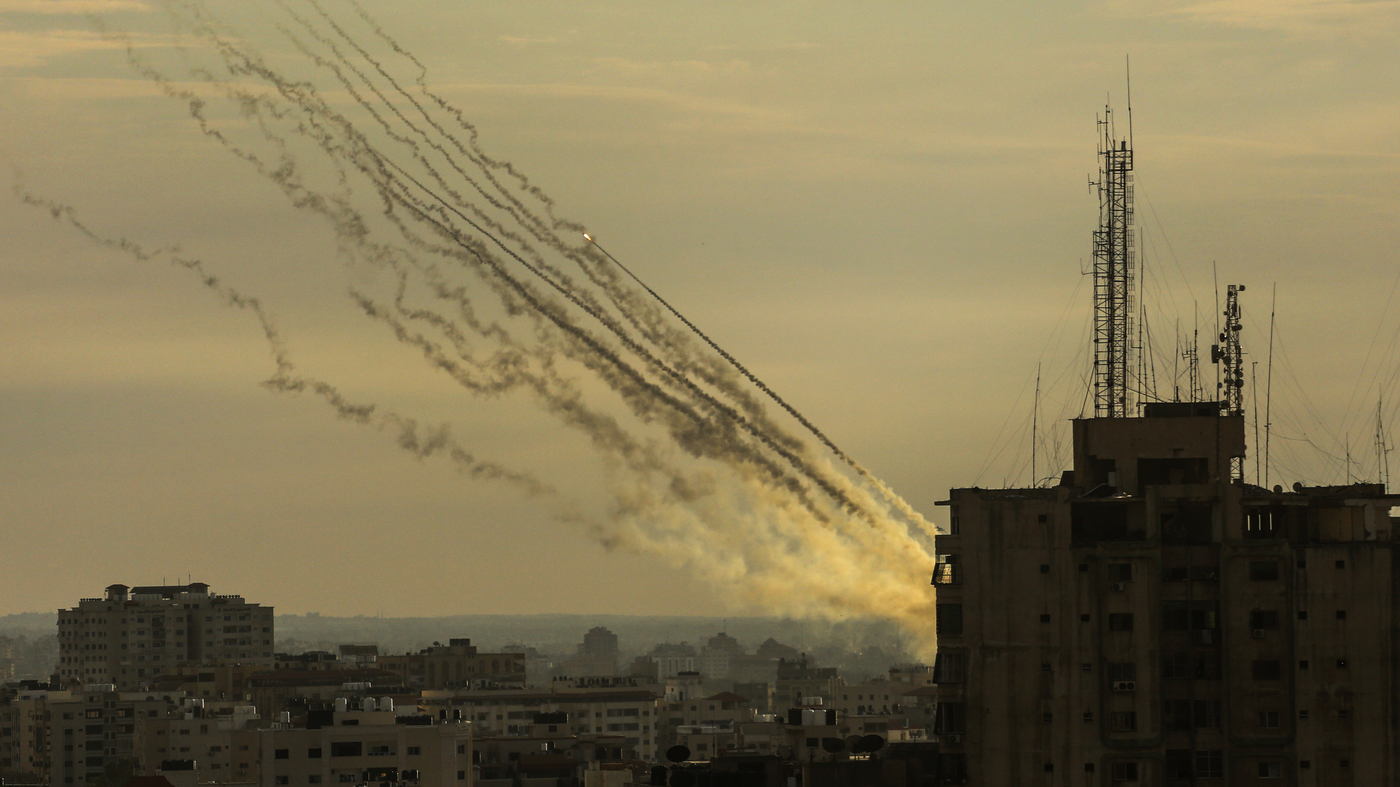
Palestinian militants fire rockets into Israel from Gaza Strip, Oct. 7.
Sameh Rahmi/NurPhoto via Getty Images
The ongoing conflict between Israel and Hamas has led to accusations of war crimes on both sides, after Israeli civilians were targeted in Hamas’ Oct. 7 attack and Israel responded with airstrikes on the densely populated Gaza Strip.
Under these conditions, protecting civilians can prove difficult or impossible. But combatants are bound by international humanitarian law to minimize the impact on populations.
Here’s what to know.
In war, what are the obligations of nations, their soldiers and groups such as Hamas?
Although the history of international law regulating warfare goes back to the first Geneva Convention of 1864, World War II — in which twice as many civilians as fighters were among the tens of millions killed and the Nuremberg Trials that held Nazi leaders to account for atrocities — spawned interest in expanding the scope of the agreement.
The 1949 Geneva Convention established Article 3, delineated combatants from noncombatants and set down the obligations of governments and militaries on how to minimize casualties and the suffering of civilians in wartime.
International humanitarian law “basically grounds the parties to a conflict,” says Fernando Travesí, executive director of the New York-based International Center for Transitional Justice, which works with victims of massive human rights violations. Armies, he says, have the right to go to war, “but that exercise of violence has limits.”
The Geneva Convention has been agreed to by 196 states and serves as the international standard on the treatment of civilians, as well as prisoners of war and sick and wounded…
Read the full article here

Leave a Reply